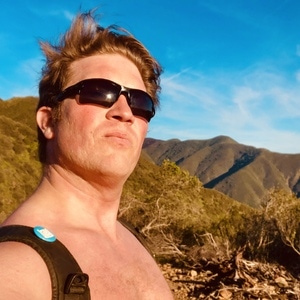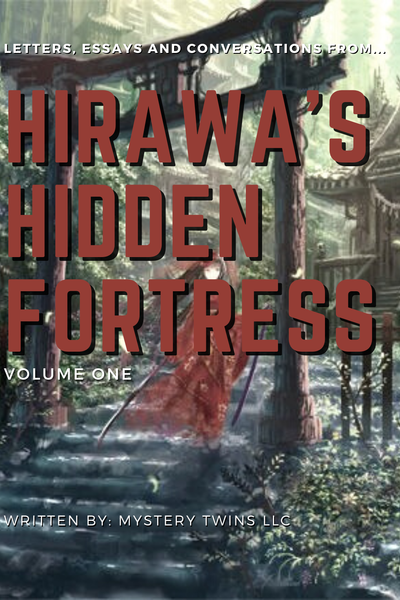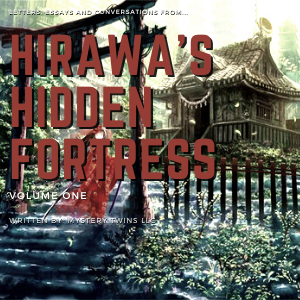Four: The Magnificent Seven
-
Agent Joy Xiuying Lynn (FBI)
Joy Lynn had climbed her way through the ranks of the Bureau and against all odds, been made a field agent. If it weren’t for the sudden shift in advisories at the end of the war, an attractive woman who could provide insight into the Chinese Civil War even her white, dense as lard, male supervisors could understand became invaluable. She’d expected the opportunity to see her ancestral homeland for the first time. Perhaps be assigned as an attache to General Marshal to broker peace between the PRC and Nationalist government.
Those expectations were summarily deflated at the desk she’d been trapped at for months after her promotion. The Bureau wanted to keep an ear to the ground within the states. Any sign of Chinese decent? Communism? Catalog it and tell, ‘The Boys.” They’ll handle it. Joy would nod and smile, dutifully completing her tasks. Of course, she wasn’t actually smiling: she was barring her teeth.
“The next slice of white bread that asks me if I can, ‘English Good,’ I’m going to bite their fucking nose off,” She’d often growl to herself.
Then something strange happened in nowhere Oregon.
Communists?
Asian?
Send Lynn, she’s Asian.
Teeth bared, she nodded, “Anywhere that gets me out of this ignorant ass office.”
-
SPC Ryan Cooper (OSS / Central Intelligence Agency)
Ryan Cooper had been recovering in a hospital after taking a round in the shoulder in the latest siege on the Maeda Escarpment, later dubbed Hacksaw Ridge. His unit would be relieved by the 77th Infantry Division. Cooper himself would later be relieved and reassigned by an Officer from the OSS who’d heard of his ability to decrypt the Japanese radio code.
Given a field promotion from private first class to specialist and sent ahead to Okinawa. Once reassigned to Task Force 58, Cooper along with a cadre of other specialists aboard the USS ESSEX reversed engineered unclassified Japanese Radio Equipment. In under a week, they’d decoded the Japanese communications between their surface airbases on Okinawa and fighter aircraft.
Teaching himself Japanese in the field during one of the bloodiest sieges imaginable was impressive. Code breaking the Japanese air communication lead to American forces dominating the skies over Okinawa.
Cooper’s reactions were noted in his official assessment of the OSS after the war, “[Breaking Japanese Comms] was a welcomed challenge and all, but I prefer to get my hands dirty.”
-
Captain Hellen Yao (Army Intelligence)
Hellen made her family proud as the only female of Japanese descent, to graduate with the first class of the Army Signal Corps on September 30th, 1940. She was also the first and only member to be detained for being a spy. After exhausting every resource at her family’s disposal, she was released and assigned to serve in London.
Through a stroke of being in the right place at the right time beside a slain commanding officer, Hellen single handly redirected an air raid to intercept Nazi Luftwaffe before reaching their secondary targets. A total of thirty-eight enemy aircraft were destroyed.
Yao was begrudgingly promoted to Captain by her superiors. Eventually, newly promoted Captain Yao transferred into Army Intelligence. Her efforts added to the coordinated joint assault dubbed, Operation Overlord: commonly referred to as D-DAY.
After the war was won, the Army Intelligence officers within the Pentagon caught wind of some Japanese Operation in Oregon. They rushed orders to send the one and only Japanese Officer within their ranks to represent.
-
Gill Hershey - State Department
Mr. Hershey had been fascinated by the Orient as a youth. That fascination blossomed into an obsession that rocketed his career into becoming one of the foremost experts in Japanese politics, culture, and minutia the general population would find painfully dull. Graduating from the traditional Ivy League his family and friends had expected of him, he turned his attention to politics.
Prior to the war, he had been a junior attache within the State Department to Japan. At a press event in ‘39 while tensions rose between the US and Japan, Hershey would come to know a fellow diplomat from across the sea, Kichisaburō Nomura.
Nomura, as observed by Hershey inspired him that peace was indeed possible between the two countries. Their two departments shared information, ideals, and late-night pub crawls around the DC Metro area hoping to unite the two nations for decades to come.
Then a coded transmission was intercepted in the early morning hours of December 7th, 1941. Nomura’s office wouldn’t decode their own message until December 8th, claiming they had been intentionally kept in the dark until the dawn raid on Pearl Harbor had been completed.
Gill’s encyclopedic knowledge of Japan exceeded most everyone within the State Department, but his idealism and optimism for peace had disappeared.
-
LtCol Torry Buckner (US Airforce - Assassin)
The OSS would eventually birth the Central Intelligence Agency. Since Intelligence was their namesake in protecting America’s interests both at home and abroad, the ranking officers in charge thought it prudent to include not one, but two pairs of eyes on the Hirawa Phenomenon.
Enter Torry Buckner: US Airforce 16th Anti-Submarine Squadron.
Despite any proper training, in 1942, mechanic Torry Buckner manned the torpedo sights on the smoldering bomber and sunk three subs. Shortly after his bomber hit the water, Torry and the surviving airmen were sent back to California to complete their training. They were shipped back out in ‘44 to aid in the Okinawa invasion. Buckner was promoted and despite being the lone black man in his squadron, his kill record spoke for itself: four patrol craft, six subs, two destroyers, and joint destruction of the Japanese Flagship Super Battleship Yamato.
His valor and skill were observed by the OSS. After the war, instead of time off in Okinawa with the rest of his unit. Buckner was recruited and whisked away from Virginia to spend the next eight months secluded in Chopawamsic National Park learning how to put his eagle eye aim to use behind a sniper rifle.
-
Master Sergeant Benjamin Cross (National Guard)
Benjamin Cross came from a long line of warriors. Specifically, spiritual warriors. His father and father before him had been part of the Baptist Church as pastors and practitioners working their way westward. Allegations of aiding troopers in the so-called conversion of Native American Children would not come to light for decades later. Until those legal cases were formally mounted, the Cross legacy would be closely tied to the United States Army and Baptist Church.
Benjamin found contentment between his service to church and state by serving under Sergeant Major Flemming while close to his father’s church in sleepy Bend, OR. Remaining stateside for the majority of the war, Ben endeared himself to his superior officers with his efficiency and tempered ruthlessness in carrying out assignments. Some officers commented on Ben’s zeal in particular in a training exercise that resulted in a new recruit ending up in the infirmary with a broken femur.
Benjamin Cross doesn’t speak, read, or possess any passing interest in anything Japanese. He does however have the highest marksmanship of score among his unit and is trusted above all others by Sergeant Major Flemming to carry out his orders.
Cameron Calloway considered his company as the tunnel seemed to stretch on much longer than the two-minute journey Kapalini had reported. Once again, the recorded message played over the intercom. Once again his name and the names of the other plainclothes assets were listed. The remaining seven members of the team also became painfully aware that the other soldiers were no longer on board the train.
“Who’d it know all our names?” Buckner asked while examining the speaker system.
Hellen Yao scribbled some notes on her palm pad, “Probably cameras, microphones hidden in the station.”
"It's a goddamn ambush," Growled Sergeant Cross.
Hellen Yao was trying to open the train car door, but gave up with a sigh, "If they wanted us dead, they'd have done it already; dispatched us along with the rest of the soldiers."
“Beg your pardon, would you remind us,” An amicable Gill had remained seated as he regarded me, “What’s your angle in all of this… Commander Calloway was it?”












Comments (0)
See all